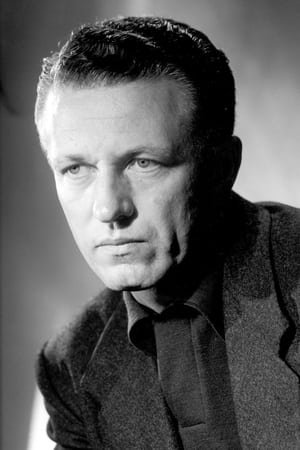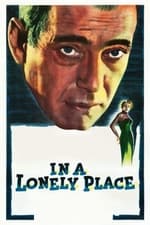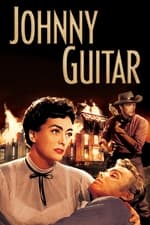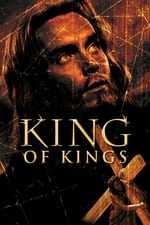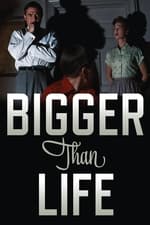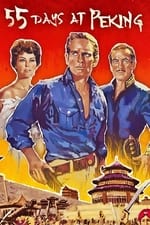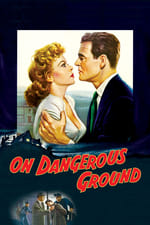Informazioni Personali
Conosciuto Per Direzione
Crediti Conosciuti 47
Sesso Maschio
Compleanno 7 agosto, 1911
Giorno della Morte 16 giugno, 1979 (67 years old)
Luogo di Nascita Galesville, Wisconsin, USA
Conosciuto anche come
- 니콜라스 레이
Valutazione Contenuto
100
Sì! Sembra buono!
Entra per segnalare un problema
Biografia
Nicholas Ray (born Raymond Nicholas Kienzle; 7 August 1911 – 16 June 1979) was an American film director best known for the films Rebel Without a Cause and Johnny Guitar. Described by the Harvard Film Archive as "Hollywood's last romantic" and "one of postwar American cinema’s supremely gifted and ultimately tragic filmmakers," Ray was considered an iconoclastic auteur director who often clashed with the Hollywood studio system of the time, but would prove highly influential to future generations of filmmakers.
His best-known work is the 1955 film Rebel Without a Cause, starring James Dean. He is appreciated for many narrative features produced between 1947 and 1963, including They Live By Night (1948), In A Lonely Place (1950), Johnny Guitar (1954), Bigger Than Life (1956), and King of Kings (1961), as well as an experimental work produced throughout the 1970s titled We Can't Go Home Again, which was unfinished at the time of Ray's death.
During his lifetime, Ray was nominated for an Academy Award for Best Adapted Screenplay for Rebel Without a Cause, twice for the Golden Lion, for Bigger Than Life (1956) and Bitter Victory (1957), and a Palme d'Or for The Savage Innocents (1960). Three of his films were ranked by Cahiers du Cinéma in their Annual Top 10 Lists.
Ray's compositions within the CinemaScope frame and use of color are particularly well regarded and he was an important influence on the French New Wave, with Jean-Luc Godard famously writing in a review of Bitter Victory, "... there is cinema. And the cinema is Nicholas Ray."
Nicholas Ray (born Raymond Nicholas Kienzle; 7 August 1911 – 16 June 1979) was an American film director best known for the films Rebel Without a Cause and Johnny Guitar. Described by the Harvard Film Archive as "Hollywood's last romantic" and "one of postwar American cinema’s supremely gifted and ultimately tragic filmmakers," Ray was considered an iconoclastic auteur director who often clashed with the Hollywood studio system of the time, but would prove highly influential to future generations of filmmakers.
His best-known work is the 1955 film Rebel Without a Cause, starring James Dean. He is appreciated for many narrative features produced between 1947 and 1963, including They Live By Night (1948), In A Lonely Place (1950), Johnny Guitar (1954), Bigger Than Life (1956), and King of Kings (1961), as well as an experimental work produced throughout the 1970s titled We Can't Go Home Again, which was unfinished at the time of Ray's death.
During his lifetime, Ray was nominated for an Academy Award for Best Adapted Screenplay for Rebel Without a Cause, twice for the Golden Lion, for Bigger Than Life (1956) and Bitter Victory (1957), and a Palme d'Or for The Savage Innocents (1960). Three of his films were ranked by Cahiers du Cinéma in their Annual Top 10 Lists.
Ray's compositions within the CinemaScope frame and use of color are particularly well regarded and he was an important influence on the French New Wave, with Jean-Luc Godard famously writing in a review of Bitter Victory, "... there is cinema. And the cinema is Nicholas Ray."
Direzione
|
||||||||||||
|
||||||||||||
|
||||||||||||
|
||||||||||||
|
||||||||||||
|
||||||||||||
|
||||||||||||
|
||||||||||||
|
||||||||||||
|
||||||||||||
|
||||||||||||
|
||||||||||||
|
||||||||||||
|
||||||||||||
|
||||||||||||
|
||||||||||||
|
Recitazione
|
||||||
|
||||||
|
||||||
|
||||||
|
||||||
|
||||||
|
||||||
|
||||||
|
||||||
|
||||||
|
||||||
|
||||||
|
Scrittura
|
|||
|
|||
|
|||
|
|||
|
|||
|
|||
|
|||
|
|||
|
|||
|
|||
|
|||
|
Troupe
|
|||
|
Produzione
|
